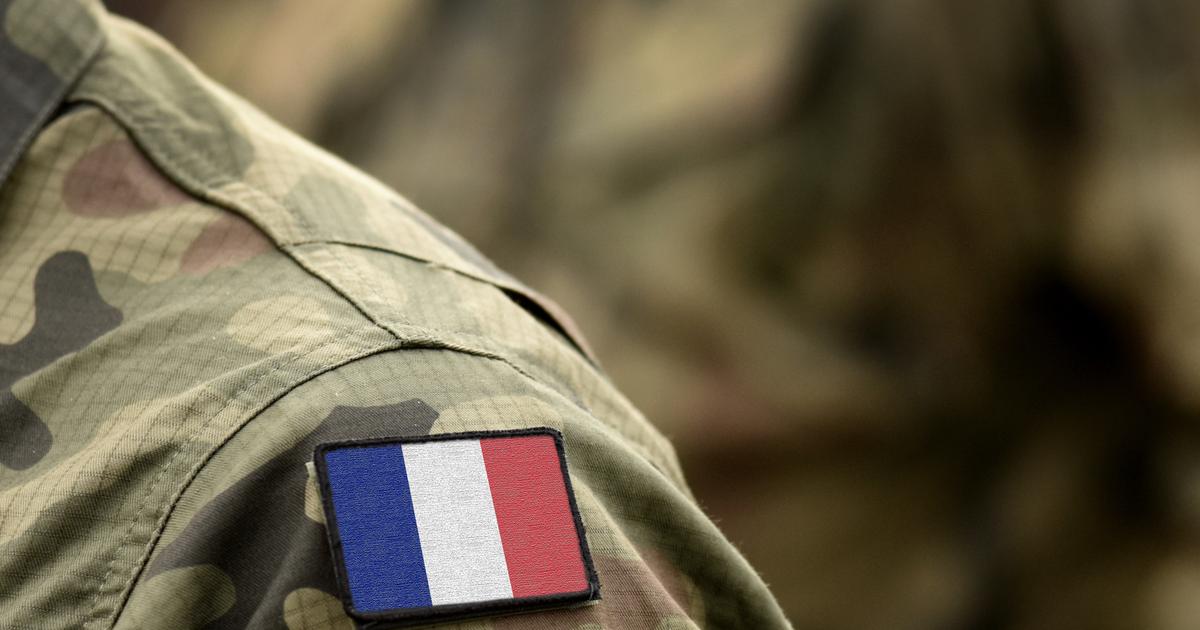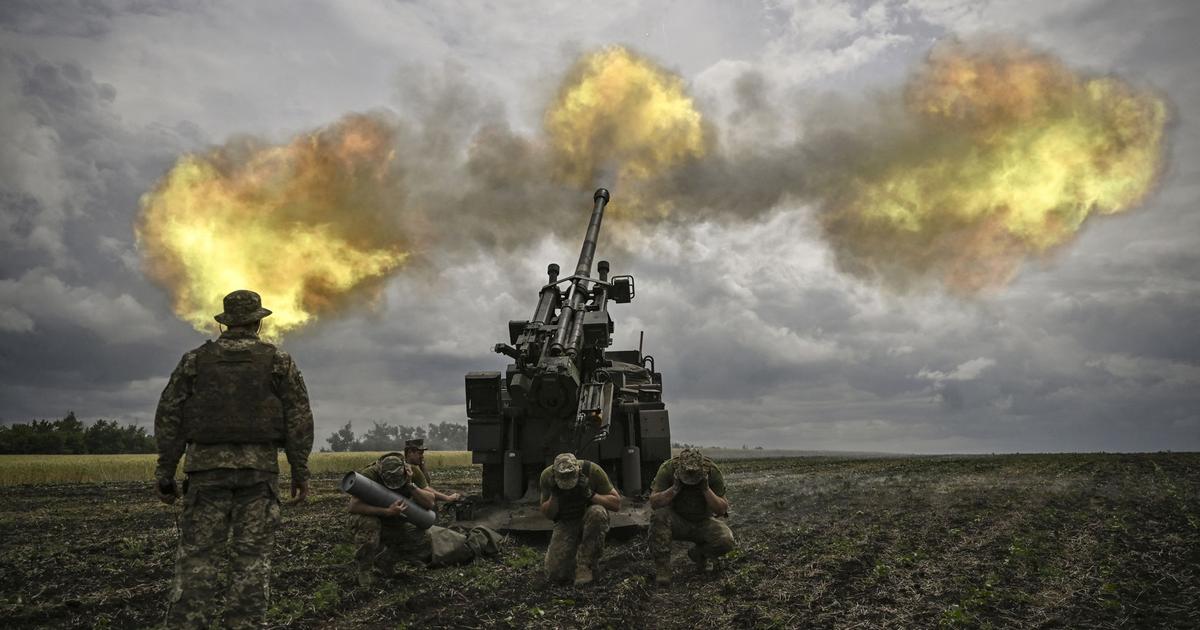Jean-Louis Thiériot is former president of the departmental council of Seine-et-Marne. Lawyer and historian, he notably published “De Gaulle, the last reformer” (Tallandier, 2018). Currently an LR deputy, he is a candidate in the legislative elections in the 3rd district of Seine-et-Marne.
Despite the weapons that were going to Ukraine, Defense was the main absentee from the presidential election.
Even more surprisingly, while many European countries are adapting their military tool (Belgium: move to 2.1% of GDP, Poland to 3%, Germany: special fund of 100 billion), France is completely silent.
The situation of our public finances, the stock of debt, inflationary threats and its corollary, the foreseeable rise in interest rates, easily explain this embarrassed silence.
However, the situation is worrying and the decisions to be taken are urgent.
Whether it is the parliamentary mission on the "high intensity combat" that I had the honor of co-reporting or the recent report of the Court of Auditors, the observation is the same.
Excluding deterrence, the French army has for it to have a “complete army model” and to have combat experience.
But she's sampler, lacking the "mass" and supplies needed to last in a high-intensity fight.
In 100 days, the Ukrainian army has thus lost the equivalent of our fleet of heavy armored vehicles and its losses in men represent a quarter of our army.
The Court of Auditors notes that, even by respecting the annual increase of 3 billion provided for by the programming law, the objective of a complete model by 2030 cannot be achieved.
Jean-Louis Thieriot
Faced with this observation, after having rightly praised compliance with the LPM, the Court notes that, even respecting the annual increase of 3 billion provided for by the programming law, the objective of a complete model on the horizon 2030 cannot be reached.
It proposes three scenarios, the first two of which are unacceptable: the abandonment of some of our capacities on the model of the
United Kingdom
's integrated review
, the "homothetic reduction" of our investments - the extension of programs at the cost of an increase in final costs – or an increase in our efforts, which is difficult to achieve in the current budgetary context.
Given the magnitude of the threats, particularly in Europe, it is however the only acceptable one.
It involves a few brave steps:
· Write a new White Paper, putting on paper the French interests, the nature of the threats and the means necessary to respond to them.
Despite the 2017 update, the latest White Paper dates from 2013 and is partially obsolete.
Urgently fill the capacity gaps already identified: stock of ammunition, deep strikes (heavy artillery for which the Ukrainian conflict has shown the ardent need), engineering, logistics, mining-breaching, drones and anti-drone fight, defense aircraft, Rafale fleet to be reinforced, fitting out our ships, to name but a few, not forgetting the training of forces and the maintenance of equipment in operational condition.
· Reflect on the technology/mass balance and reinforcement of the volume of forces, probably through an increased call on the reserve and the reduction of internal operations such as Sentinel.
Anticipating the challenges of tomorrow by 2040 because weapon systems are built very upstream: hypersonic weapons, directed energy weapons, quantum computer, AI, cognitive warfare...
It's time for political courage to take on expenses that are often unpopular – even though the image of the armies is exceptional and there is a real Keynesian multiplier.
Jean-Louis Thieriot
All of this will be expensive, but more than in any other matter, the ability to "win the war before the war", that is to say to avoid it, deserves to come under a "whatever the cost " of security.
It's time for political courage to take on expenses that are often unpopular – even though the image of the armies is exceptional and there is a real Keynesian multiplier.
She is also into innovative solutions.
Why not deepen the possibilities of leasing with a private fund, outside the State budget, dedicated to the acquisition of Defense equipment allowing to rent the equipment and to budget only the rent or what would be destroyed.
Finally, in Brussels, the fight must be waged so that defense expenditure is excluded from the Maastricht criteria.
Belgium and Poland have already requested it.
It is up to France to be the leader on this file.
The European pillar of the Defense of Europe is a key issue, provided it is conducted with lucidity without naivety.
Anything that strengthens the ability of Europeans to defend themselves is a good thing.
But "European strategic autonomy" remains a chimera for many of our partners.
For our allies, particularly in the East, NATO remains the unsurpassable horizon.
The 7 billion from the European Defense Fund (compared to the 1000 billion in annual expenditure), permanent structured cooperation and even Thierry Breton's excellent report on European defense are only milestones.
For a long time yet, defense will remain national and ad hoc bilateral agreements the most effective instrument.
This maxim, “as much Europe as possible, as much national as necessary” also applies to the defense industry.
In abstracto
, it would be desirable to have European giants.
In concreto
, on projects such as the SCAF or the MGCS, we measure the difficulties of cooperation which only make sense if they make it possible to obtain, for less and more quickly, equipment that meets the real needs of our armies.
This is far from always the case.
If we add to this the American tropism of certain players – Airbus, which powers the Eurodrone with GE engines, or Germany, which, as soon as the creation of the 100 billion fund was announced, ordered American F35s – vigilance must be bet.
Defense is much more than military defence, it is civil defence, economic defence, cyber defence, cultural and moral defence.
Jean-Louis Thieriot
A few priorities stand out: implementation of a
European arms buy act
in return for cooperation;
preservation of French freedom in major exports;
safeguarding the financing of the BITD (defence industrial and technological base) threatened by certain ESG criteria or certain disastrous projects such as the social taxonomy and the sustainable finance label which would exclude the Defense sector.
The creation of a State Secretariat at the BITD which would coordinate the various actors could be a response.
All of these elements must be integrated into the notion of "Global Defence" defined by the 1959 ordinance, the spirit of which must be rediscovered: Defense is much more than military defence, it is civil defence, economic defense, cyber defense, cultural and moral defense.
It is the resilience of the nation, the promotion of sovereignty for vital industries, the constitution of strategic stocks.
Without falling into an irrelevant obsidional fever, the strengthening of the planning units of the SGDSN (General Secretariat for Defense and National Security) is a real necessity.
In short, it's time for action!
It is also, on this key subject, if the courage is there, at the national union of government parties.
The sword of France is above parties!









